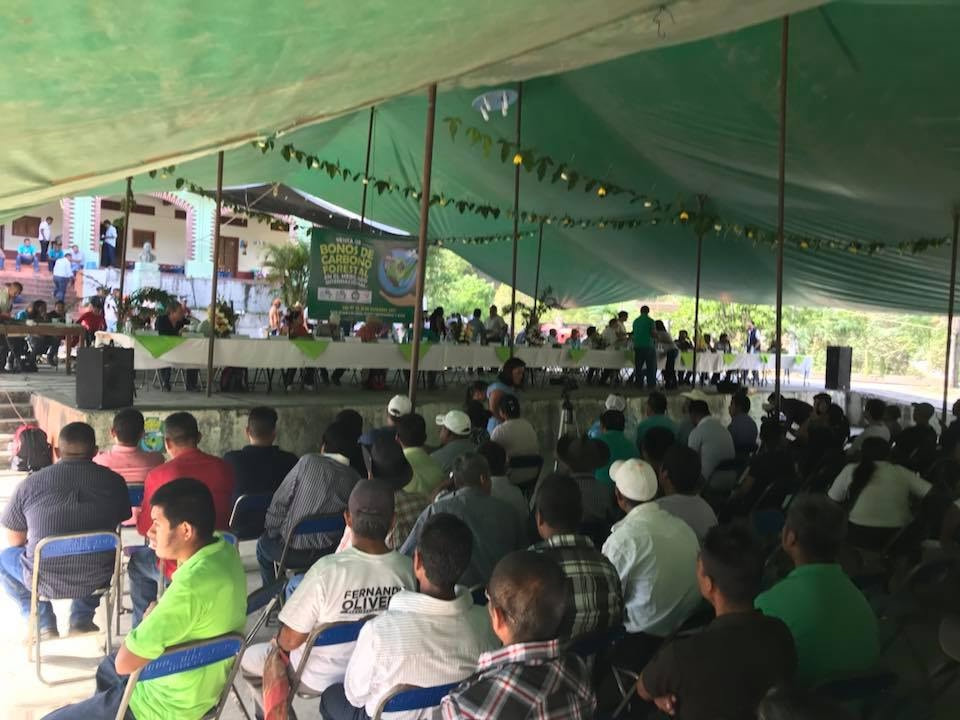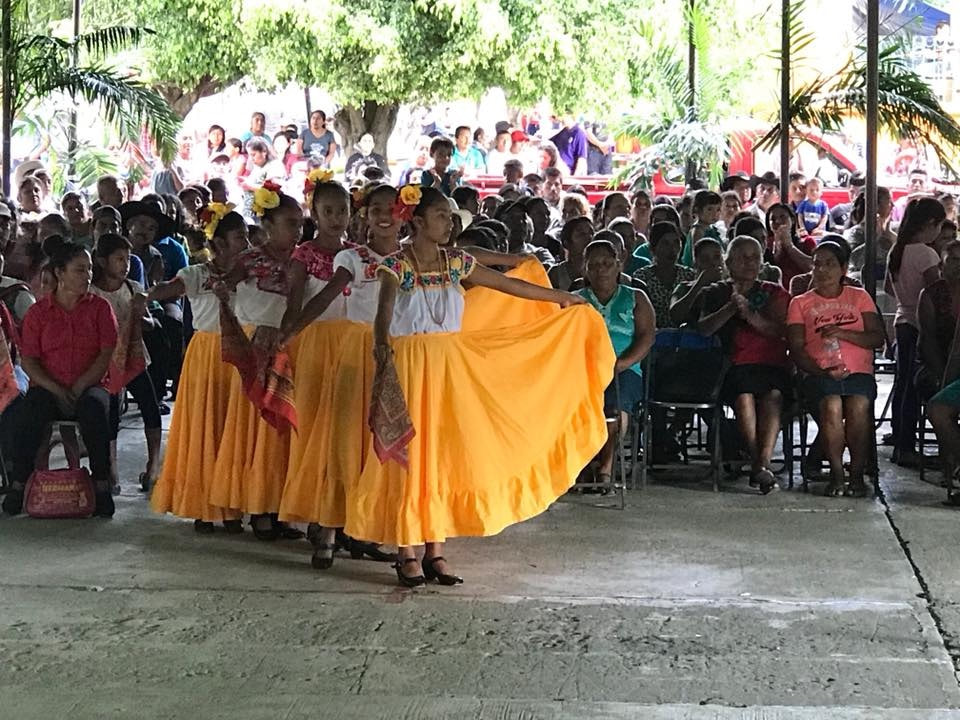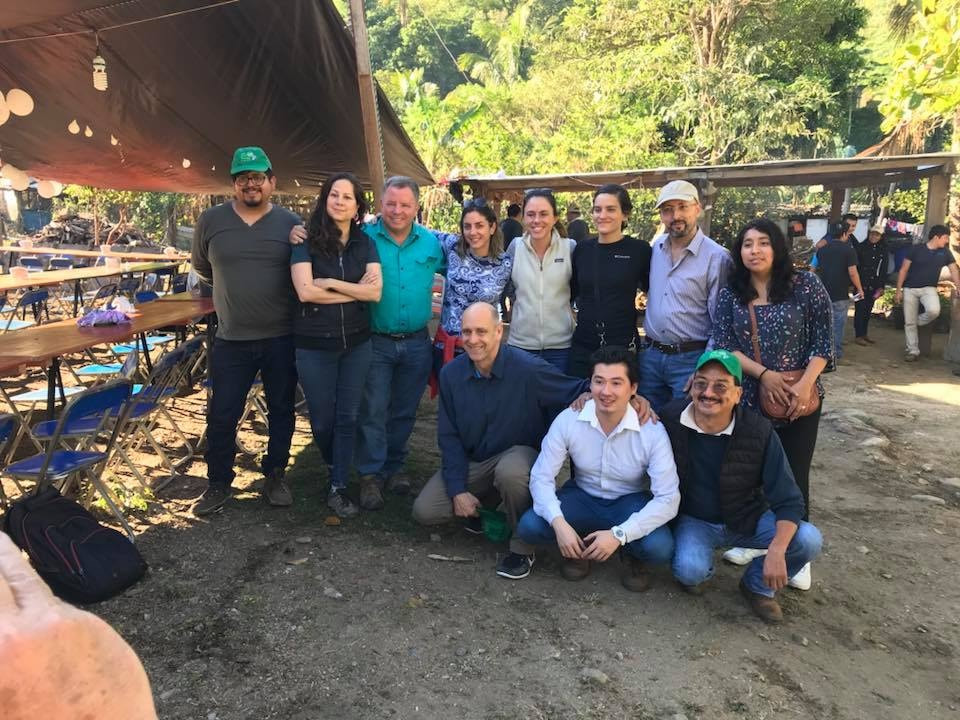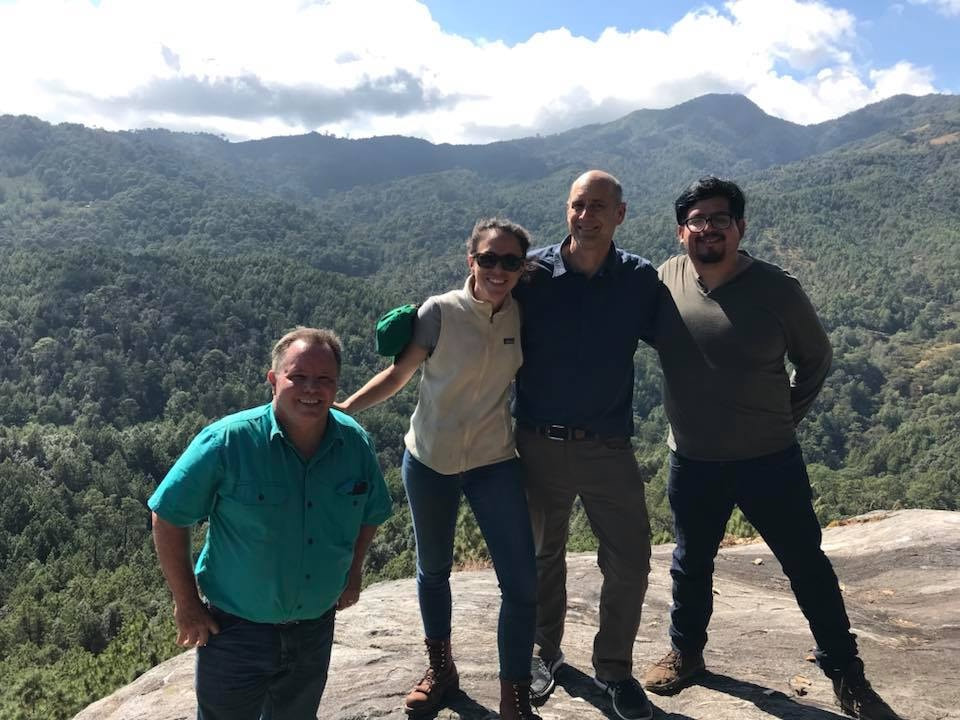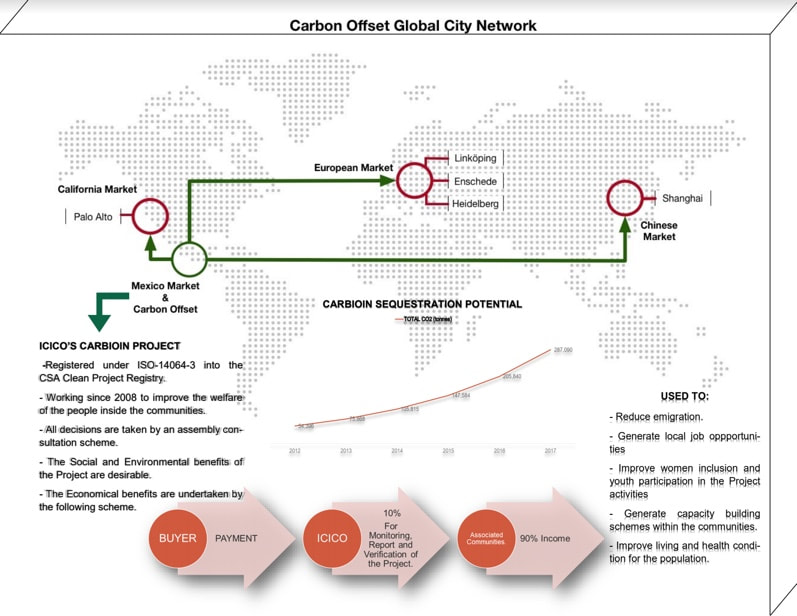In Oaxaca, Mexico Neighbors Abroad is catalyzing forest-based carbon sequestration across the vast forests of subtropical Oaxaca, and then initiating a carbon exchange network across our group of Sister and Sibling cities. Click here to learn about the carbon offset initiative we have launched in connection with our visiting delegations. Above we look across the first sequestration project in San Juan Lachao, Oaxaca.
Palo Alto’s Carbon Offset Program with Oaxaca
|
Neighbors Abroad helped create the first forestry-based carbon offset transaction between the United States and Mexico in 2017. A carbon offset program manages forests to allow carbon to be captured in the wood of trees rather than being a greenhouse gas.
The offset project generated significant social, environmental and economic benefits in Oaxaca, while allowing the City of Palo Alto to satisfy requirements as a municipally owned gas utility that offsets all greenhouse gas emissions. A $136,000 transaction associated with the purchase of 17,000 tons of carbon offsets was made through Integradora de Comunidades Indígenas y Campesinas de Oaxaca (ICICO), a Mexico-based community-based environmental nonprofit organization that distributes the technical knowledge into the community with the generation of approximately 20 new jobs, jobs that keep families together and reduce pressure to migrate to the United States with consequential family impact. In 2021, Neighbors Abroad helped develop a new transaction to extend the purchase across six years and 115,000 tons of carbon transferring $1,150,000 to communities associated with managing 25,000 acres of subtropical forest. This initial purchase was followed by a second contract in 2021 for the purchase of 24,000 tons of carbon for a contract value of $228,000. This contract expands the impact to additional communities in Oaxaca including La Trinidad and Xiacui in the mountains of Oaxaca. Sequestering Carbon Across Oaxaca's ForestsICICO is controlled by the rural communities, and has as staff environmental professionals to develop, train and monitor the forestry projects. ICICO worked with the Climate Action Reserve to a protocol that allows the carbon sequestered in Mexico to be accepted into California's offset market. As accepted into the California market, the offsets can be monetized in California and thereby bring revenue to rural Oaxaca.
ICICO creates projects in forested rural communities where the rural community has rights to large tracts of land. The projects are approved by CAR, and then can be initiated. With a project approval, after about 18 months the credits can be purchased, such as were purchased by the City of Palo Alto. The community enters into an agreement to manage the forest for 50 year. The benefits are multi layered. The project brings scarce cash to the village in the form of forestry management jobs. While the communities generally thrive on barter as an economy, cash is also essential for items such as cell phones. With cash, a family head can stay in the village, and not necessarily migrate to the United States for income. The management of the forests create secondary economies given small scale timber harvesting, and the opportunity to develop secondary crops such as coffee. This coupled with the principal benefit of the greenhouse gas reduction. Growing Toward a Global Sister City Carbon Network
Cities are working around the world in their critical role as a strong direct force in climate protection and socioeconomic development. Cities with strong financial resources have been leading the way in innovation and progress. The next great challenge is to develop innovative means to support such progress in cities with limited resources and that are struggling to provide basic services to their millions of citizens. By applying the relationships and trust within Sister City networks, a win-win model has been created: developed cities are investing directly in carbon offsets in their sister city of Oaxaca, Mexico which is gaining from social, economic and environmental benefits.
To develop a global network, operated by Neighbors Abroad, between cities to develop carbon sequestration projects in Mexico with associated social and environmental benefits. Initially expand through Palo Alto’s sister city network and then grow a city-by-city offset network building on ICICO as the gateway to Oaxacan community offset projects. |
Community celebration in San Juan Lachao to recognize agreement between Palo Alto, ICICO and San Juan Lachao for purchase of carbon offsets.
Wedding dance performed in San Juan Lachao during celebration of carbon offset agreement.
Project team including Alberto Ramírez of ANCE, Alejandra Salazas of PRONATURA, John Nickerson of Climate Action Reserve (CAR), Teresa Tatterfield de ICICO, Amy Kessler of CAR, Ceci Simón of CAR, Pedro Morales of CAR, Iris Rosas Trujillo de Alen del Norte, Bob Wenzlau of Neighbors Abroad, Oswaldo Blanco de SEMARNAT and Carlos M. Pérez of ICICO.
Team members John Nickerson and Amy Kessler of Climate Action Reserve (CAR), Bob Wenzlau of Neighbors Abroad and Alberto Ramírez of ANCE in front of the managed forest for sequestration of carbon near San Juan Lachao, Oaxaca Mexico
|
|
Climate Network Model
A model of sharing validated carbon offsets created in Oaxaca, Mexico across California, Europe and China. While consistent with the protocols set by the Climate Action Reserve, the offsets can be traded into other markets to serve the climate goals of industrialized countries. The offsets are administered in Oaxaca, and sold into a public marketplace. The project development costs are anticipated to be contributed by the cities participating in the network in return for discounts on future offset purchases. |

